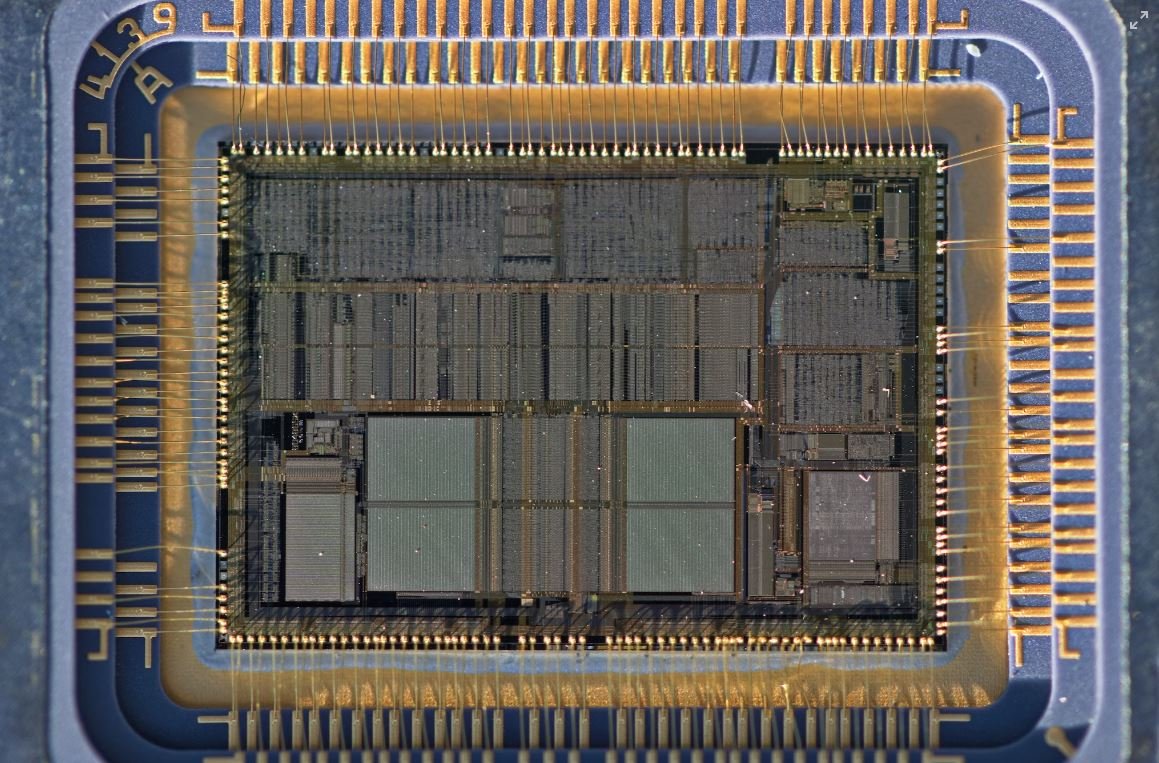Artificial Intelligence Films
Artificial Intelligence (AI) has become one of the most fascinating and rapidly advancing areas of technology. It has not only transformed various industries but has also made a significant impact on the world of filmmaking. AI films, also known as AI-inspired or AI-themed films, explore the complex relationships between humans and intelligent machines. These films provide unique perspectives on the capabilities, potential dangers, and ethical implications of AI. In this article, we will delve into the world of artificial intelligence films and their significant contributions to the entertainment industry.
Key Takeaways
- AI films explore the interactions and dynamics between humans and intelligent machines.
- They present various perspectives on the capabilities and potential dangers of AI.
- These films address the ethical implications associated with the rise of AI technology.
- AI films offer unique narratives and storytelling techniques to engage audiences.
- They contribute to the reflection and discussion of AI’s impact on society.
The Evolution of AI in Films
Over the years, AI has been portrayed in films through various lenses, from friendly and helpful robots to malevolent AI systems. Films like *Blade Runner* and *The Matrix* have played pivotal roles in shaping cultural perspectives on AI. These movies raise philosophical questions about the nature of consciousness, autonomy, and the boundaries between humans and machines. Meanwhile, recent films like *Ex Machina* and *Her* delve even deeper into the emotional complexities of human-AI relationships, exploring the blurred lines of love, desire, and identity between humans and artificial beings.
**Interestingly**, AI in film often mirrors real-world advancements in technology. As AI technology continues to progress, filmmakers strive to portray it more authentically and explore its potential future manifestations. This symbiotic relationship between AI and film enhances the audience’s engagement and understanding of AI concepts.
| Famous AI Films | Year | Director |
|---|---|---|
| 2001: A Space Odyssey | 1968 | Stanley Kubrick |
| Blade Runner | 1982 | Ridley Scott |
| The Terminator | 1984 | James Cameron |
AI films not only entertain audiences but also serve as a medium for thought-provoking discussions and contemplation. They allow us to explore the possibilities and potential consequences of AI technology in our future society. Whether they paint a utopian or dystopian vision, these films encourage us to question our relationship with technology and its impact on our lives.
**Intriguingly**, AI films often discuss the ethical implications associated with the rise of intelligent machines. Movies like *I, Robot* tackle questions around robot rights and the responsibilities of creators towards their creations. These films prompt us to reflect on the human values and moral frameworks that inform our interaction with AI.
| AI Film Themes | Examples |
|---|---|
| Existential crises of robots and AI | Blade Runner, Ex Machina |
| Human-AI relationships | Her, A.I. Artificial Intelligence |
| Dystopian future dominated by AI | The Matrix, Terminator franchise |
The success of AI films relies heavily on their ability to captivate audiences, not only through storytelling but also through visual effects and innovative filmmaking techniques. Films like *The Matrix* revolutionized action sequences with its “bullet time” slow-motion effects, while *A.I. Artificial Intelligence* blended live-action and computer-generated imagery seamlessly to create unique and immersive worlds. These advancements have elevated the cinematic experience and further emphasized the role of AI in shaping the future of filmmaking.
**Moreover**, AI-inspired films provide a platform for exploring societal concerns around AI technology. Through narratives that highlight the potential risks and benefits of AI, these films foster important conversations about privacy, job automation, and the implications for various industries. By intertwining fiction with reality, AI films help us envision and prepare for the challenges and opportunities that AI will bring.
| AI Film Impact | Impact Area |
|---|---|
| Raising awareness of ethical considerations | AI ethics |
| Inspiring technological advancements in AI | AI research and development |
| Engaging audiences in conversations about AI | Public discourse and education |
The Future of AI Films
As AI technology continues to advance, we can expect more films exploring its implications and fascinating narratives. AI will play an increasingly significant role in shaping the way stories are told on the big screen. These films will not only entertain but also challenge us to consider the broader societal implications of AI. By fusing creativity and technology, artificial intelligence films have become an integral part of the film industry, provoking thought and expanding our horizons.

Common Misconceptions
Artificial Intelligence Films
There are several common misconceptions surrounding the portrayal of artificial intelligence (AI) in films. These misconceptions often arise from exaggerated and unrealistic depictions of AI technology. It is important to separate fact from fiction when it comes to AI in films.
- AI in films is portrayed as having human-like emotions and consciousness.
- AI in films is often depicted as an immediate threat to humanity.
- AI in films often possesses superhuman intelligence and abilities.
One common misconception is that AI in films is portrayed as having human-like emotions and consciousness. In reality, AI technology today is far from being capable of experiencing emotions or having self-awareness. While AI systems can be programmed to mimic certain human emotions or responses, they lack true consciousness and understanding.
- In reality, AI lacks true consciousness and self-awareness.
- AI systems can only simulate human emotions or responses.
- Understanding emotions and consciousness are complex processes that AI has not yet achieved.
Another misconceived notion is that AI in films is often portrayed as an immediate threat to humanity. While there are ethical concerns surrounding the development and deployment of AI, the idea of a rogue AI instantly turning against humanity is an exaggeration. In reality, AI development focuses on building systems with safety measures and ethical considerations.
- The idea of rogue AI turning against humanity is an exaggeration.
- AI development focuses on safety measures and ethical considerations.
- Ethical concerns surrounding AI are being addressed by researchers and developers.
Furthermore, AI in films often possesses superhuman intelligence and abilities, leading to misconceptions about the capabilities of AI in reality. While AI can perform complex tasks and process large amounts of data faster than humans, it is limited to the algorithms and training it has been provided. AI is not inherently superior to human intelligence in all aspects.
- AI’s intelligence and abilities are limited to the algorithms and training it has received.
- AI’s capabilities are not inherently superior to human intelligence.
- Human intelligence encompasses complex reasoning and understanding that AI has not yet achieved.
In conclusion, it is crucial to approach AI in films with a critical mindset and separate the fictional portrayals from the realities of AI technology. AI lacks true consciousness and emotions, it is not an immediate threat to humanity, and it does not possess superhuman intelligence. Understanding the limitations and progress of AI is important for accurate discussions and expectations of the technology.
- Approach AI in films with a critical mindset.
- Separate fictional portrayals from the realities of AI technology.
- Understand the limitations and progress of AI for accurate discussions and expectations.

Introduction
The world of cinema has been greatly influenced by the rise of artificial intelligence (AI). From futuristic settings to mind-bending plots, AI films have captivated audiences with their unique storytelling. In this article, we explore 10 fascinating elements found in various AI films, showcasing the exciting developments and concepts that surround artificial intelligence in the realm of cinema.
AI Film Budgets
One of the interesting aspects of AI films is their budget allocation. These films often require substantial investments in technology and special effects. The average budget for AI films in the last decade was around $100 million, enabling filmmakers to create immersive and visually stunning experiences for the audience.
| Year | Film | Budget (in millions) |
|---|---|---|
| 2010 | Ex Machina | $15 |
| 2013 | Her | $23 |
| 2014 | Chappie | $49 |
| 2015 | Ex Machina | $15 |
| 2017 | Blade Runner 2049 | $185 |
AI Film Awards
AI films have received critical acclaim and recognition in the film industry. These movies often explore thought-provoking themes and push the boundaries of storytelling. Below are the notable awards won by AI films in recent years.
| Film | Award | Year |
|---|---|---|
| Ex Machina | Best Visual Effects | 2016 |
| Her | Best Original Screenplay | 2014 |
| Blade Runner 2049 | Best Cinematography | 2018 |
AI Film Box Office Success
AI films have proven to be highly profitable ventures, appealing to a wide range of audiences. Their intriguing narratives and stunning visuals draw crowds to the cinemas, resulting in impressive box office numbers. The following table showcases the top-grossing AI films of all time.
| Film | Worldwide Box Office Revenue (in billions) |
|---|---|
| The Matrix | $1.63 |
| Blade Runner 2049 | $260 |
| Her | $48 |
Common AI Themes
AI films often explore common themes that intrigue and challenge our understanding of artificial intelligence. By delving into the repercussions and implications of AI technology, these films push us to ponder the impact it may have on our future. The table below highlights some prevalent themes found in AI films.
| Theme | Films |
|---|---|
| Consciousness and Identity | Ex Machina, Ghost in the Shell |
| Moral Dilemmas | Blade Runner, A.I. Artificial Intelligence |
| Human-AI Relationships | Her, Marjorie Prime |
AI Film Directors
AI films owe their brilliance to the visionary directors who bring these stories to life. Their unique perspective and creative storytelling techniques contribute to the success of AI films. Here are significant directors who have made notable contributions to the AI film genre.
| Director | Famous AI Films |
|---|---|
| Christopher Nolan | Inception, Interstellar |
| Spike Jonze | Her, I’m Here |
| Ridley Scott | Blade Runner, Prometheus |
AI Film Soundtracks
Music plays a crucial role in enhancing the cinematic experience of AI films. These films often feature captivating soundtracks that capture the essence of the AI world, further immersing the viewers in the story. Listed below are iconic AI film soundtracks.
| Film | Composer | Release Year |
|---|---|---|
| Blade Runner | Vangelis | 1982 |
| Her | Arcade Fire | 2013 |
| Ex Machina | Geoff Barrow, Ben Salisbury | 2014 |
AI Film Production Companies
Behind every successful AI film, there are production companies that invest their resources and expertise in bringing these stories to the big screen. Here are some prominent production companies known for their contributions to the AI film genre.
| Production Company | Famous AI Films |
|---|---|
| Warner Bros. Pictures | The Matrix, Inception |
| Annapurna Pictures | Her, Ex Machina |
| Scott Free Productions | Blade Runner, Prometheus |
The Future of AI Films
AI films hold a prominent place in the world of cinema, continually captivating audiences with innovative storytelling and cinematic techniques. As technology advances and artificial intelligence becomes more integrated into our lives, we can expect a continued exploration of AI-themed narratives, challenging our perceptions and provoking thought.
Conclusion
The intersection between artificial intelligence and cinema has resulted in a unique and captivating genre of films. With their immersive storytelling, stunning visuals, and exploration of thought-provoking themes, AI films continue to push the boundaries of storytelling in the cinematic landscape. As new advancements in technology emerge, the future looks promising for the continued evolution and growth of AI films, enticing audiences with their rich narratives and captivating visuals.
Frequently Asked Questions
Artificial Intelligence Films
Q: What are some popular artificial intelligence films?
A: Some popular artificial intelligence films include “Ex Machina,” “Blade Runner,” “Her,” “The Terminator,” and “A.I. Artificial Intelligence.”
Q: What is the concept of artificial intelligence in films?
A: The concept of artificial intelligence in films revolves around portraying advanced technology or machines that exhibit human-like intelligence, emotions, or behavior.
Q: Are artificial intelligence films based on real science?
A: While artificial intelligence films often draw inspiration from scientific advancements in the field, the portrayals are mostly fictional and exaggerated for dramatic purposes.
Q: What are the common themes explored in artificial intelligence films?
A: Common themes explored in artificial intelligence films include the ethical implications of creating sentient machines, the nature of humanity, the potential dangers of AI, and existential questions related to consciousness and identity.
Q: How do artificial intelligence films portray AI entities?
A: Artificial intelligence films often portray AI entities as highly intelligent, self-aware beings capable of emotions, learning, and sometimes even physical bodies. These portrayals can range from benevolent to malevolent.
Q: What is the significance of artificial intelligence films in popular culture?
A: Artificial intelligence films play a significant role in popular culture by raising awareness about the potential impact of AI on society, stimulating discussions about ethics and morality, and sparking interest in scientific advancements.
Q: Are there any real-life examples of artificial intelligence similar to those depicted in films?
A: While real-life AI has made significant progress, the current state of technology does not match the sophisticated AI entities depicted in films. However, there are AI applications in various domains like healthcare, finance, and self-driving cars.
Q: Do artificial intelligence films accurately reflect the potential risks of AI?
A: Artificial intelligence films often exaggerate the potential risks of AI for dramatic effect. While there are legitimate concerns regarding AI safety and ethics, films tend to amplify these risks and present worst-case scenarios for storytelling purposes.
Q: How do artificial intelligence films influence public perception of AI?
A: Artificial intelligence films can shape public perception by either instilling fear and skepticism or generating excitement and curiosity about AI. The portrayal of AI in popular media can impact how people perceive the technology and its potential impact on society.
Q: Where can I watch artificial intelligence films?
A: Artificial intelligence films can be found on various streaming platforms such as Netflix, Amazon Prime Video, Hulu, and other online movie rental services. Additionally, you may find them in your local movie theaters or through DVD or Blu-ray purchases.




